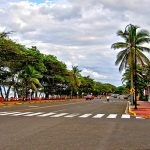Ministry of Interior and Police swears in 55 new Dominican citizens

Santo Domingo.- The Ministry of the Interior and Police swore in 55 foreigners who pledged to support the defense and sustainability of the Dominican Republic. The group consists of 54 adults and one minor, including 30 women and 25 men from countries such as Croatia, Republic of Moldova, Romania, Russia, Pakistan, Hungary, Belgium, Denmark, Spain, Canada, Mexico, Peru, Italy, Cuba, Colombia, Chile, United States, Venezuela, Bolivia, Ecuador, Guatemala, Puerto Rico, and Haiti.
Minister Jesús Vásquez Martínez administered the oath, reminding the new citizens of their duties and rights and urging them to ally in the fight against crime and in supporting the country’s interests.
“Now you are Dominicans, now you are ours,” Vásquez Martínez said. “We hope you will be our allies and partners in this fight. This country is ours, and we must take care of it and protect it. We must all work together to achieve the levels of citizen security we aspire to.”
He explained that the Ministry implements various programs to inspire citizens, such as “De Vuelta al Barrio,” where successful individuals return to their communities as role models, “Community Leaders Conflict Mediators,” which resolves neighborhood disputes, and “Model Citizens,” recognizing those who adhere to societal rules and laws.
Vice Minister of Migration Management and Naturalization, Juan Manuel Rosario, emphasized the importance of transparency in the naturalization process to prevent the inclusion of criminals. He noted that the new citizens enjoy the full privileges of citizenship, except for eligibility for the vice presidency or presidency. He also reiterated that intermediaries are unnecessary for acquiring naturalization documents.
“Anyone who acquires nationality with fraudulent information or false documents will lose it and face the country’s criminal laws,” Rosario stated.
Since 2020, 889 foreigners have been sworn in as Dominican citizens, with 31 percent from Cuba, 10.3 percent from Spain, 8.8 percent from Italy, 8.3 percent from Haiti, and 6.9 percent from the United States.
The event was also attended by the Director of Immigration Affairs, Laura Mariñez.

















Based on the information provided, it seems like 65.3% of new citizens in the Dominican Republic have been identified, but we’re still unsure about the origins of the remaining 34.7%. This raises an interesting question: Where do these new citizens come from? With 889 foreigners naturalized since 2020, this means around 308 individuals are unaccounted for. Could you please share more details about the nationalities of these new citizens? It would help us understand this demographic shift better!
According to the ministry, they come from these countries: Croatia, Republic of Moldova, Romania, Russia, Pakistan, Hungary, Belgium, Denmark, Spain, Canada, Mexico, Peru, Italy, Cuba, Colombia, Chile, United States, Venezuela, Bolivia, Ecuador, Guatemala, Puerto Rico, and Haiti.